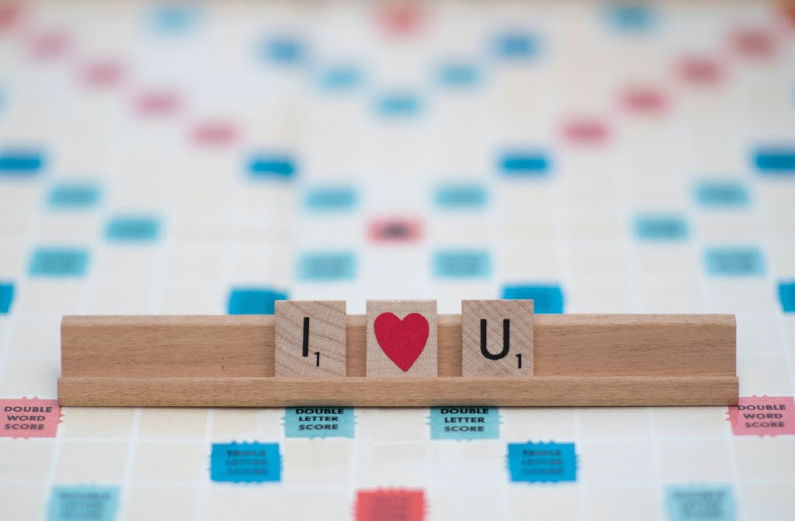Some years ago, I was scanning through the internet (which can sometimes be a mind-numbing thing to do). You know how one link can lead to another and another… and another? The next thing you know, you’ve uncovered a gem, read it, and with a single click, it wanders off into the interwebs, never to be found again. I would love to remember where I found this seed of an idea so I could thank the originator for how it has enriched my life.
As I recall, a woman was relating the story of a family relations class she took in college after she had raised her children. The professor challenged each student to write a “thank you” letter to their mom or dad. He explained that it was important to stretch themselves beyond the “thank you that I was born” phase and really search for the meaningful gifts their parents had provided in their lives.
The professor talked about how children (from birth to about age 6) simply observe and take in the small world they are part of. We are imprinted with values and beliefs about how “Dads are” or “Moms are” or “children are” when they are incapable of engaging critical thinking or reasoning skills. Then, as we are exposed to the outside world (from 6-13), we add to that initial foundation and begin modeling what we see in our peers, our teachers, etc. By the time we are about 20, we typically “lock in” and pretty much determine the person we are for the rest of our lives.
He said researchers determined that most people will live out their lives in this frame of mind unless one (or both) of two things happen:
- We have a significant emotional event that shifts our thinking and impacts our beliefs, values, and behavior, or…
- We make a conscious choice to gain the skills to understand more deeply. A newly internalized value or belief may subsequently change our life choices.
In this article, she related that her father had passed away some years before and that the idea of writing a letter of thanks to him intrigued her. Since they had not always seen eye to eye when she was growing up, it had never occurred to her to thank him.
As she accepted the challenge to stretch herself, she was amazed at how her years of maturing had given her a much deeper perspective about her father. She began recognizing how much he had impacted her values and beliefs.
The article went on to say how profoundly she was impacted by this experience. She realized that every year she was going to write another ‘chapter’ of her thanks. She could now understand that her ability to value her father was directly related to how much she matured as a person and the deeper insights that come with this process of maturing. She understood that the way she experienced her father revealed her development as a person — not his.
“Thank You For the Gift You Are to Me” Letters
 The seed of an idea has been germinating in my mind since then. I began realizing how much more meaningful it would be to say “thank you for the gift you are to me” while the person was still alive rather than waiting to share it with others at their funeral.
The seed of an idea has been germinating in my mind since then. I began realizing how much more meaningful it would be to say “thank you for the gift you are to me” while the person was still alive rather than waiting to share it with others at their funeral.
This seed came to fruition when my stepsister, Ruby Colleen, came back into my life after nearly 20 years. My father married her mother when I was about 12 years old. Ruby was already a young mother with three children. She was an important, though peripheral, part of my life from that time until I was about 35. It took me several years to mature enough to identify all the many wonderful gifts she had given to me that ultimately encouraged me to consciously choose to change my life.
Once I was reunited with Ruby, we shared a close relationship for another five years until her brush with death in the winter of 2005. During this time, we were inseparable. We made frequent visits to one another’s home and we talked daily on the phone.
We cherished these happy moments together as we both opened our hearts and shared the insights we had gained in our lives. We truly appreciated and celebrated the gift we were to each other. We talked about arranging our lives so we could live closer. We longed to spend endless hours together in the everyday routines of our lives. Although that never actually occurred, we understood that the importance of what we were experiencing could not be diminished by the fact that we lived miles apart.
Years ago I read a wonderful story called Hinds Feet on High Places by Hannah Hurnard. It’s an allegory about Much Afraid who longs to escape the Village of Much Trembling in the Valley of Humiliation where she lives with her old maid aunt, Aunt Dismal Forebodings. As she strives to follow the Good Shepherd, she is constantly harassed by her two Fearing Cousins, Craven and Cowardly. She longs to climb to the Higher Places, where “perfect love casteth out all fear.” Much Afraid decides to journey up the mountain to the Higher Places. The problem is, she’s crippled from all the years she has spent in the Valley. She asks the Good Shepherd how she was going to be able to climb the steep mountain.
The Good Shepherd tells her that her companions on this journey will be Sorrow and Suffering. She is disappointed because she wants to travel with Peace and Joy. The Good Shepherd promises her that as long as she holds onto the hands of her companions, she will be able to climb. However, should she let go of their hands, her cousins Craven and Cowardly will try to pull her off the mountain.
Each time she lets go, stumbles, and falls, the Good Shepherd comes to love, teach, comfort, and encourage her. He instructs her to select a small stone and place it in her pouch each time she stumbles and falls. By the time she nears the top of the mountain, her pouch is filled to overflowing and seems an unbearable burden. These stones represent all the hard learning experiences she has endured.
When she finally gets to the top of the mountain and the home of the Good Shepherd, he invites her to open her heavy pouch. Instead of stones, she discovers each one has been transformed into a priceless jewel of learning.
Letting Others Know They Have Touched Our Lives

To read more of Sonja’s articles, click here.
As a personal development coach and trainer, if I was ever to create a workshop, I would love to help people unlock the repository of their hearts and celebrate all the gifts in their lives. Our awareness of the value of each of our lives is enriched as we gain the comprehension of how our life meaningfully touched the lives of others.
Much of the richness of life comes from looking back as we reach our mature years. It seems from birth to about the age of 55 or 60, we are preoccupied with the business of living and just getting through the day. The joy of maturity is having the time — no… taking the time — to assess the treasures we have accumulated along the way.
The following are the events surrounding my first effort in sharing my gratitude to one of my greatest teachers, my stepsister, Ruby. In the winter of 2005, Ruby collapsed with Sudden Adult Death Syndrome (SADS) while shopping. The ambulance rushed her to the hospital although she had no vital signs. At the hospital they were able to revive her. Her quality of life plummeted at that point and she often expressed that she wished they hadn’t been able to revive her. As we spoke of her impending death, which happened soon after, Ruby wanted me to know I could express myself at her memorial services any way I wanted to. I knew I wanted to share with the rest of the family how much we treasured our friendship. I wanted the rest of the family to understand the person I experienced her to be.
At Ruby’s memorial service in April 2006 (it happened some months later due to the family being widespread), as I spoke, I encouraged everyone to take the time to share with each other the gifts they are in your life. Don’t wait until the funeral to reflect on the value they are to each other.
After I returned home from the memorial, I realized that there were so many things I had left unspoken. Part 2 is the letter to the family that I wrote after the memorial and finally, Part 3 is my memorial to Ruby. Both will be published in the coming weeks.
I am grateful I took the opportunity to personally share my gratitude with Ruby in the years just preceding her death.
In the years since then, I have determined to write “The Gift You Are To Me” letters to my parents that have passed, my siblings, my friends, and especially to my sons, granddaughters, and great-grandchildren. So far I’ve only written to my oldest brother and a friend that was a strength to me when I was a single mom (and in all the years since). I cannot emphasize enough my hope that reading these posts will inspire others to consider the value of writing these letters to their loved ones — especially while they are still living.
About Sonja Hopkins
Sonja lives with her husband, Dale, on Anderson Island, Washington. She and her husband are Church Service Missionaries serving in the Addiction Recovery Program, focusing on pornography and sex addiction. She is also a certified life coach and teaches "Life Skills for Emotional Self-Mastery" in her stake twice a month. She does not teach you only to process something traumatic done to you in the past; rather, she helps you learn to feel it, heal it, and LET GO of whatever you still do to yourself and to others in order to cope with what was done to you in the past.
Twitter •







I love this! You are an example to follow, Sonja, and it’s great there’s a way you can share your wisdom and life’s experiences here.
Love you!